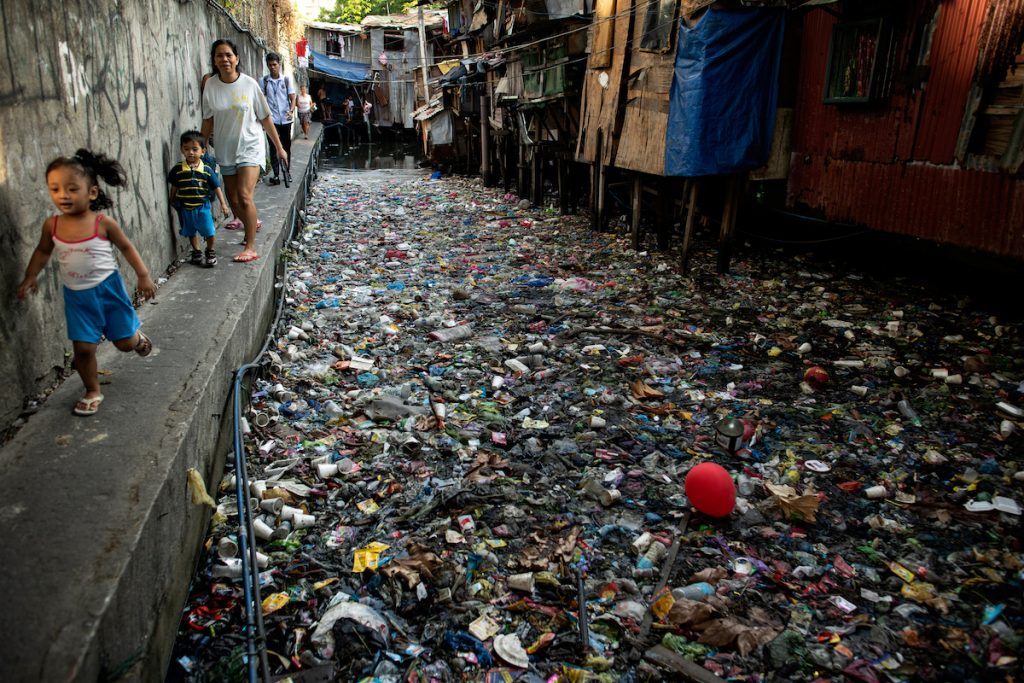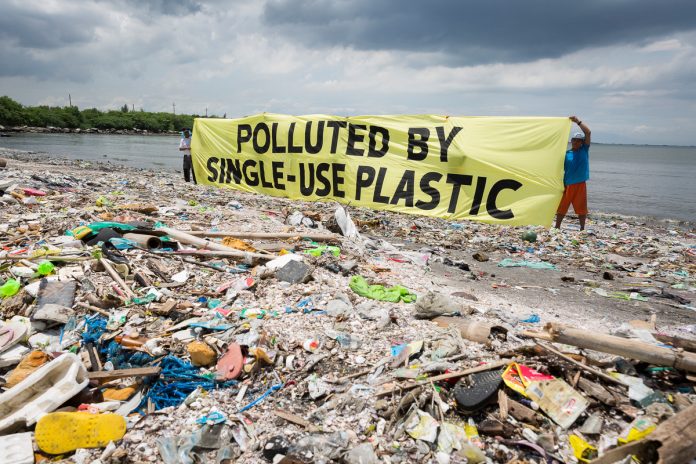Pro-environment groups lauded the approval this week of a measure in the House of Representatives that seeks the gradual phaseout and ban of single-use plastic products in the country.
Legislators approved the “Single-Use Plastic Products Regulation Act” on July 28 with 190 affirmative votes, zero negative, and one abstention.
Father Antonio Labiao, lead convenor of the National Laudato Si Program of the Philippine Catholic Church, described the move a “a step closer to realizing better plastic waste disposal.”
“We are hoping that this legislative measure continues to be a priority until its enforcement,” said the priest who is also executive secretary of Caritas Philippines.
Father Labiao urged the public to follow the initiatives of various local government units, people’s organizations, and church communities “who have turned their plastic wastes to better use.”
Under the proposed measure, non-compostable single-use plastic products “will be phased out within four years” from the time the measure takes effect
The products include oxo-degradable plastics, film wrap, packaging, or bags of less than 50 microns in thickness, sachets and pouches that are multilayered with other materials, and food and beverage containers made of expanded polystyrene.
Other plastic products, such as drinking straws, stirrer, stick for candies, buntings, confetti, and packaging of less than 10 microns in thickness “will be phased out within a year” from the time the measure takes effect.
“Properly labelled flexible disposable plastic drinking straws for persons with special medical conditions shall be allowed, when no suitable reusable or compostable alternatives are available,” the bill states.
Globally, at least 127 countries have already passed legislation to regulate the production, use, and disposal of plastic products.

In the Philippines, nearly 500 local government units have adopted ordinances that seek to address the problem on single-use plastic products.
Marian Ledesma of Greenpeace lauded the move, saying it is “a timely response to the urgency to eliminate unnecessary single-use plastic items.”
She said the proposed measure could help “curb the impacts and injustices stemming from plastic’s entire lifecycle.”
“This also sends a strong message to plastic manufacturers that they have a responsibility to significantly reduce their contribution to the plastics problem and transition to alternative delivery systems,” said Ledesma.
She then urged the Senate to “respond with an even stronger legislation to improve and exclude problematic provisions and practices in the bill,” which the lower chamber had approved.
Ledesma said the country must “ensure that no waste incineration or offsetting are included in the proposed law.”
The Center for International Environmental Law estimated that plastic production and incineration would result in more than 850 million metric tons of greenhouse gas emissions.
The proposed law also seeks to institute the “Extended Producers Responsibility” program, which will hold producers and manufacturers responsible for collecting and recycling plastic.
In a statement, the group Living Laudato Si Philippines said the government must “put more pressure on producers, importers, and commercial establishments to provide consumers with more environment-friendly options for packaging, containers, and other products.”
In a pastoral letter on ecology issued in 2019, the Catholic Bishops’ Conference of the Philippines urged the public to help address the impact of the climate crisis by performing ecological actions including “eliminating single-use plastics, polystyrene and the like, from our homes and institutions.”









